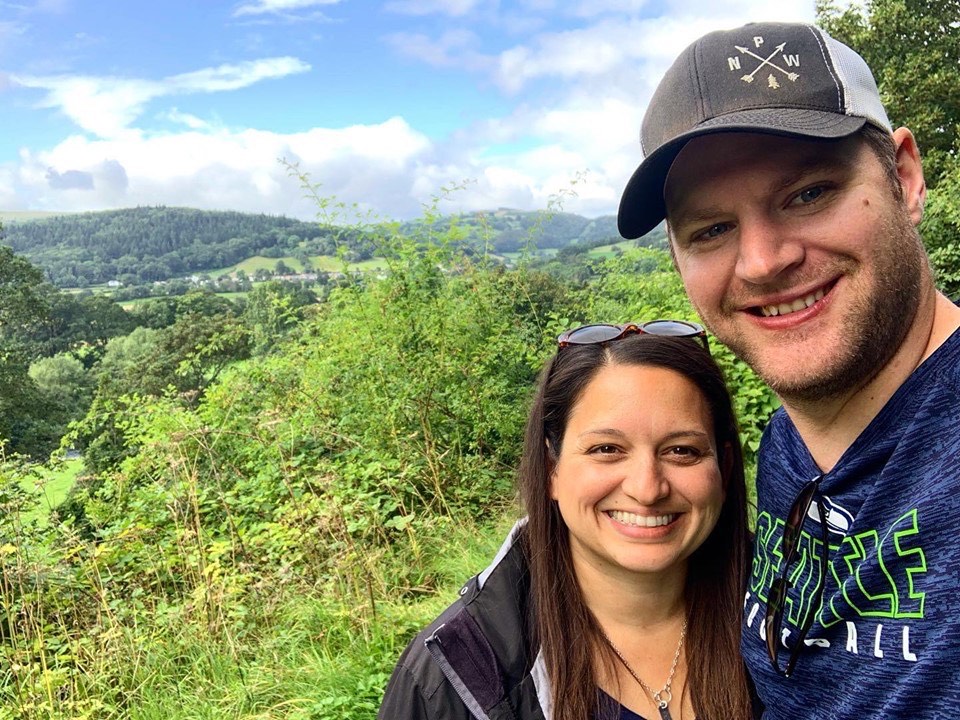Billy’s sermons these past couple of weeks have helped me to consider my role in the issues being highlighted right now, specifically the racial injustice that has once again been thrust out of the shadows into public light across the nation. It is true that real and eternal reconciliation is only possible through trusting in Jesus and his death on the cross and resurrection. As Billy has preached, meeting at the foot of the cross with all our brothers and sisters is our responsibility in terms of seeing that reconciliation on earth. As John 13:35 says, “Your love for one another will prove to the world that you are my disciples” (NLT).
Due to a long record of racism and oppression in our country, we as a church need to face that the offer of joining as one body to pursue reconciliation and peace feels empty to our brothers and sisters of color if we don’t acknowledge their righteous anger and calls for justice and accountability. If we are living out the gospel, it should feel as welcoming to those who look different from us, or who have vastly different life circumstances, as it does to those who look like us. It’s true that ultimate justice belongs to the Lord, but we know that doesn’t absolve us from being called to action when faced with injustice all around us. Micah 6:8 reminds us that God expects us to “do justice, and to love kindness, and to walk humbly with your God” (ESV & NASB). God calls us to act as Jesus would toward those who are marginalized in our community:
Share each other’s burdens, and in this way obey the law of Christ.
GALATIANS 6:2 (NLT)
We see people of color being treated as outsiders or not being believed or listened to about their life experiences of facing injustice. God calls us to respond differently by joining with those who are weary from carrying this burden of oppression, supporting their voices, and acting together to end injustice.
Learn to do right; seek justice. Defend the oppressed. Take up the cause of the fatherless; plead the case of the widow.
ISAIAH 1:17 (NIV)
If we are white members of the body of Christ, we can acknowledge the blind spots in our understanding of what it is like to be mistreated based on skin color. We can come to terms with the fact that we have benefited from the systems in our country that continue to oppress people with less power. All of us in the body—people of color along with white people—can also take the lead in showing the world that we fully see each other, see and value all of our differences, and that we choose to love and have grace for each other as image bearers of God.
I am certainly no expert on the subject of racial reconciliation. I defer to qualified leaders who are inspiring change in hearts and in the world—specifically Latasha Morrison, founder and president of Be the Bridge and author of the insightful, culture-challenging book of the same name. Her team partners with churches and organizations with a Christ-centered vision for racial reconciliation and equity. I have heard Ms. Morrison express (rightly so) that churches should be leading the way in this effort. Reading Be the Bridge would be a great starting place to prepare your heart.
Be the Bridge states their values as focused on…
“...looking at truth straight in the face. No sugar coating. We believe that the truth will set us free. We trade defensiveness and pride for a posture of humility. We listen and acknowledge mistakes. We treat each other like fellow image-bearers and children of God. Without exception. We acknowledge and sorrow in our brokenness and mistakes, deciding to move forward toward healing. We receive God’s grace. We give grace. We grow in grace. We center the voice of the marginalized and urge advocacy for racial justice across the legal, economic, political and social dimensions. Acknowledging our interconnectedness, we help repair bonds that have been broken. We make right the injustice and brokenness in ourselves, community, and society.”
So what can we do when reading about or talking about these painful injustices—and our role in the systems that perpetuate them—is uncomfortable or seems too hard? Please be encouraged not to look away if you have the privilege not to be living these experiences yourself. Rather, pray for healing, peace, and salvation for the broken world—and act in a way which demonstrates your commitment to true unity and peace, which can only be brought forth through justice for all people. This is a time for a both/and approach, as LifeWay has talked about in terms of other kingdom work.
When we make space to listen and learn more from our hurting brothers and sisters of color…
When we stand with them against systemic racism wherever it continues to exist—even when (especially when) it may cost us something…
When we sacrifice our own comfort and pride to work to become more Christ-like in the way we love all of our neighbors…
We offer hope to the world.

Melissa Foster loves Jesus and her family. She has been married to Bryan for nearly 15 years and is mom to Patrick and Samantha. The call of Melissa’s heart is to be with and work for the hurting and poor among us. She pursues that calling as a licensed clinical social worker. Melissa loves and serves the kids of LifeWay Church, where she and Bryan have been members since 2016.